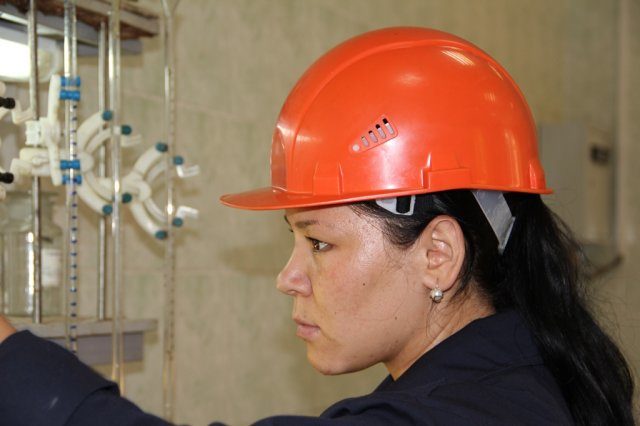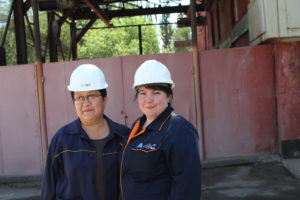International Women’s day 2019 #BalanceforBetter
Posted by Kirsten Newitt

Closing gender gaps in the world of work is key to achieving sustainable development goals, yet there are persistent inequalities between women and men in access to the labour market. Women are typically over-represented in vulnerable jobs and under-represented in better-paid leadership roles. Across the world, women continue to face a number of deep-seated challenges at work, from occupational and sectoral segregation to discrimination and gender-based violence. Gender norms play an important role: women’s choices about paid work are typically shaped by restrictive ideas about appropriate roles for women (and men), and mean that women continue to take on the dominant share of unpaid care work in the home.
Ergon is proud of its ongoing work with companies to support gender equality and achieve #BalanceForBetter across a range of different sectors and geographies. While we seek to apply a gender lens to all our work, here is a snapshot of our gender-focused projects from the past year.
Supporting women’s employment and leadership in the energy sector
- We are providing long-term technical support to Samruk-Energy, one of Kazakhstan’s leading energy companies, on behalf of the European Bank for Reconstruction and Development (EBRD), to strengthen policies and practices on equal opportunity across a workforce of over 17,000 employees. As a crucial sign of senior leadership commitment to gender equality, Samruk-Energy signed the Women’s Empowerment Principles for this year’s International Women’s Day. Other project activities planned for 2019 include a review of corporate policies, procedures and communications frameworks; activities to support women’s leadership; and a pilot outreach programme to schools, TVET providers and universities to encourage girls to study in energy-related fields.
- On behalf of the World Bank, we designed a three-day women’s leadership training programme for Elektroprivreda Srbjije (EPS), the Serbian state-owned energy company. The programme, successfully piloted in December 2018, is targeted at women who work in technical fields and those who have been identified as having leadership potential. It will be rolled out across the company in 2019.
Promoting better working conditions and career pathways for women in manufacturing
- Last year, we worked with the Women’s Employment Program at the International Finance Corporation (IFC) to conduct an in-depth gender diagnostic of a garment manufacturing firm in Vietnam. The assessment involved detailed analysis of business and workforce metrics, interviews with managers, and focus group discussions with workers, and resulted in a series of carefully crafted recommendations for supporting women’s employment and career progression, articulated within the context of a tailored business case.
Making the business case for employer-supported care
- In 2019, we are working with IFC to explore the business case for employer-supported care solutions in Vietnam, building on IFC’s 2017 global report Tackling Childcare: The Business Case for Employer Supported Care (developed with contributions from Ergon). This new report will present an overview of the current landscape regarding provision of child and elder care in Vietnam and feature six best practice case studies predominantly from the banking and manufacturing sectors. Employer-supported care can take many different forms – from on-site crèches to flexible working hours: the report will reflect this diversity, and provide guidance on the forms of support that might be applicable to different contexts, whilst articulating the business case for doing so.
- In 2018, Kirsten Newitt presented the findings of the global Tackling Childcare IFC research project to the regional launch in Sarajevo and participated in a panel discussion with local experts.
Gender equality, decent work and development finance
- We developed a good practice case study of the Radisson Nairobi, which has established a successful Women4Growth (W4G) programme, supported by Swedfund. A series of W4G workshops provided leadership training for female employees and a platform for women to make recommendations to management. This led to the introduction of enhanced maternity leave and leave to care for sick children, as well as ongoing dialogue with senior management. This case study formed part of a larger research report for FMO and the Association of European Development Finance Institutions (EDFI) on decent work and development finance.
Applying a gender lens to human rights due diligence
- In January 2019, Kirsten Newitt spoke to a group of ETI members about how to apply a gender lens to human rights due diligence. Her presentation formed part of ETI’s series of Gender Learning Events and featured practical tips for brands and case studies on good practice.
